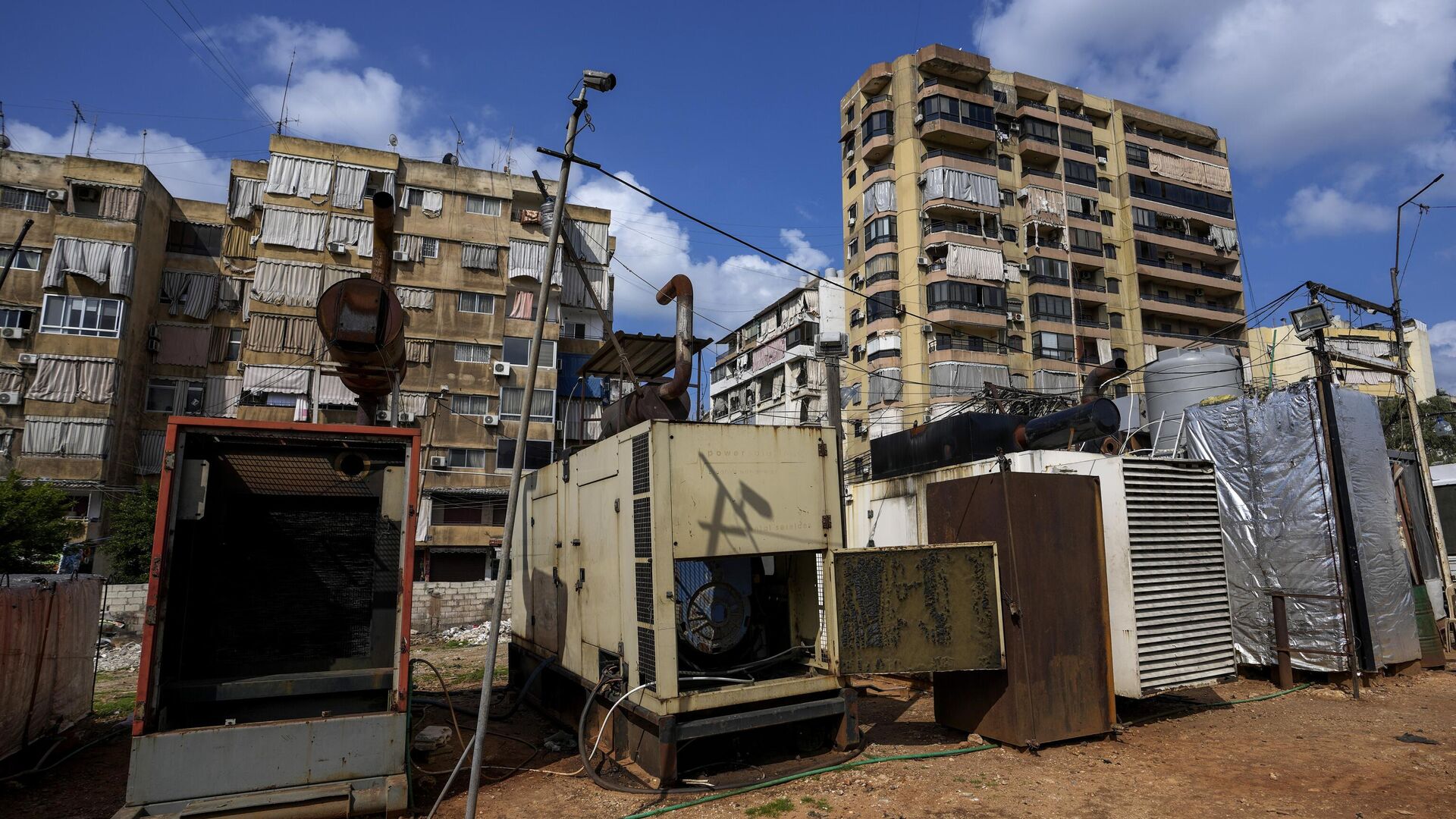https://en.sputniknews.africa/20240821/algeria-to-send-fuel-tanker-to-lebanon-for-power-plants-on-wednesday-evening-1067955873.html
Algeria to Send Fuel Tanker to Lebanon for Power Plants on Wednesday Evening
Algeria to Send Fuel Tanker to Lebanon for Power Plants on Wednesday Evening
Sputnik Africa
The issue of power supply in Lebanon has remained unresolved since the end of the civil war (since the early 1990s). Before the start of the economic crisis in... 21.08.2024, Sputnik Africa
2024-08-21T19:05+0200
2024-08-21T19:05+0200
2024-08-21T19:05+0200
lebanon
algeria
israel
middle east
power
electricity
international
reserves
crisis
energy crisis
https://cdn1.img.sputniknews.africa/img/07e8/08/15/1067955657_0:160:3072:1888_1920x0_80_0_0_43cc21c14c297d50dc45a8b54c720ce0.jpg
Algeria's state oil and gas company, Sonatrach, announced it will send a fuel tanker to Lebanon on Wednesday evening to help restore the country's electricity supply.Last Saturday, Algerian President Abdelmadjid Tebboune decided to assist Lebanon by providing fuel after Électricité du Liban reported a complete electricity shutdown due to fuel depletion. Earlier, former advisor to the Minister of Energy and Water Resources under Hassan Diab's government, Raja Al-Ali, told Sputnik that power plants in Lebanon could be completely shut down in the coming days due to a lack of fuel reserves in the country. In this context, Israel's threats to plunge the country into darkness are ineffective.After the crisis in Lebanon began, the supply was reduced to two to eight hours a day. During periods when the state ran out of fuel reserves and had no funds for new supplies, the country was left entirely without power for several weeks in a row. In such conditions, diesel generators became an alternative energy source. The owners of these generators have obstructed the resolution of the energy crisis at the state level for many years, lobbying for their businesses.
lebanon
algeria
israel
middle east
north africa
Sputnik Africa
feedback@sputniknews.com
+74956456601
MIA „Rossiya Segodnya“
2024
News
en_EN
Sputnik Africa
feedback@sputniknews.com
+74956456601
MIA „Rossiya Segodnya“
Sputnik Africa
feedback@sputniknews.com
+74956456601
MIA „Rossiya Segodnya“
lebanon, algeria, israel, middle east, power, electricity, international, reserves, crisis, energy crisis, north africa, abdelmadjid tebboune, humanitarian aid
lebanon, algeria, israel, middle east, power, electricity, international, reserves, crisis, energy crisis, north africa, abdelmadjid tebboune, humanitarian aid
Algeria to Send Fuel Tanker to Lebanon for Power Plants on Wednesday Evening
The issue of power supply in Lebanon has remained unresolved since the end of the civil war (since the early 1990s). Before the start of the economic crisis in October 2019, public electricity was supplied to residents in various cities and regions for 12–18 hours a day.
Algeria's state oil and gas company, Sonatrach, announced it will send a fuel tanker to Lebanon on Wednesday evening to help restore the country's electricity supply.
Last Saturday, Algerian President Abdelmadjid Tebboune decided to assist Lebanon by providing fuel after Électricité du Liban reported a complete electricity shutdown due to fuel depletion.
Sonatrach stated that the tanker 'Ain Akra' will carry 30,000 tonnes of fuel as the first phase of supplies, emphasizing President Tebboune's order as a sign of "solidarity and brotherhood" between Algeria and Lebanon.
Earlier, former advisor to the Minister of Energy and Water Resources under Hassan Diab's government, Raja Al-Ali, told
Sputnik that power plants in Lebanon could be completely shut down in the coming days due to a lack of fuel reserves in the country. In this context, Israel's
threats to plunge the country into darkness are ineffective.
After the crisis in Lebanon began, the supply was reduced to two to eight hours a day. During periods when the state ran out of fuel reserves and had no funds for new supplies, the country was left entirely without power for several weeks in a row. In such conditions, diesel generators became an alternative energy source. The owners of these generators have obstructed the resolution of the energy crisis at the state level for many years, lobbying for their businesses.

